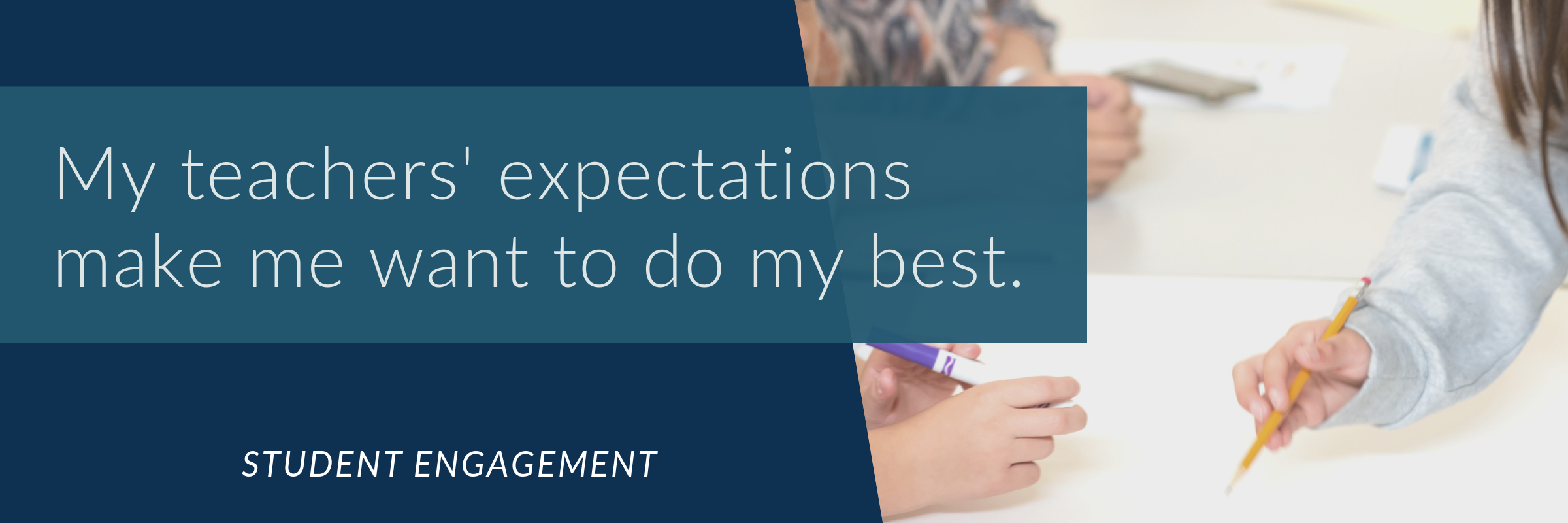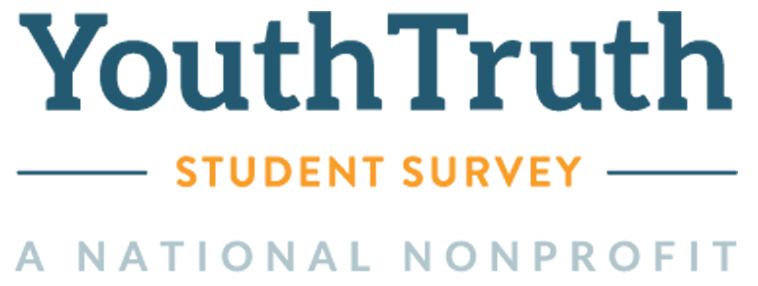
Why does it matter?
Teacher beliefs and behaviors shape student performance. The YouthTruth Survey question “My teachers’ expectations make me want to do my best” can help measure whether we are successfully communicating to students through our words and our behaviors that we want all students to do their best work. How are your expectations shaping your moment-to-moment interactions with students in ways that can speed or stall a student’s learning?
You’ll also find this resource linked to a similar question on the Elementary Survey, “Does your teacher want you to do your best.”
Seven ways teachers can change their expectations for students
Meet
Each week, spend time with students outside of your role as “teacher.” Let the students choose a game or other nonacademic activity they’d like to do with you. Your job is to NOT teach but watch, listen and narrate what you see, focusing on students’ interests and what they do well. This type of activity is really important for students with whom you often feel in conflict or who you avoid.
Reach out
Know what your students like to do outside of school. Make it a project for them to tell you about it using some medium in which they feel comfortable: music, video, writing, etc. Find both individual and group time for them to share this with you. Watch and listen to how skilled, motivated and interested they can be. Now think about school through their eyes.
Reflect
Think back on your own best and worst teachers, bosses or supervisors. List five words for each that describe how you felt in your interactions with them. How did the best and the worst make you feel? What specifically did they do or say that made you feel that way? Now think about how your students would describe you. Jot down how they might describe you and why. How do your expectations or beliefs shape how they look at you? Are there parallels in your beliefs and their responses to you?
Watch
Pay attention to how each student interacts. How do they prefer to engage? What do they seem to like to do? Observe so you can understand all they are capable of.
Listen
Try to understand what motivates them, what their goals are and how they view you, their classmates and the activities you assign them.
Talk less
Talk with students about their individual interests. Don’t offer advice or opinions – just listen.
Experiment
Change how you react to challenging behaviors. Rather than responding quickly in the moment, take a breath. Realize that their behavior might just be a way of reaching out to you.
